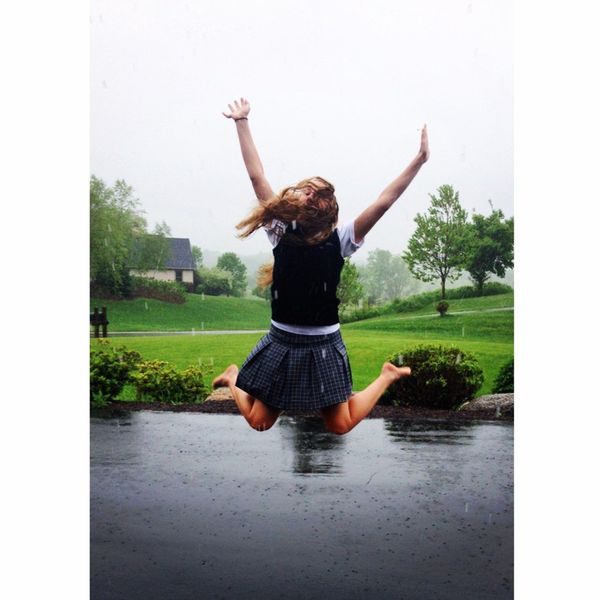As most of my friends already know, one interesting thing about me is that I was private schooled. And to answer a few common questions right off the bat, yes we had uniforms, no they were not awful, and no, we weren’t all stuck up rich kids.
Since I don't often talk about it, I wanted to write about my education, and what made it unique. So I’ve compiled five aspects of my Kindergarten through twelfth grade education that stick out in my memories into a convenient list, because everyone likes lists, right? So without further ado, here are five truths about growing up in a private, Classical Christian school.
1. The Uniforms
This is probably the one I get asked the most questions about. Our uniforms were really not that bad, at least for me, but by the time I got to college it felt very strange to go to class wearing “normal clothes”. I never really developed a style for myself until after I graduated high school (and I still wouldn’t say I really have one) because there was never need to. That was probably my favorite thing about it: it completely eliminated the importance of what you wear, especially in middle school, which was kind of nice.
2. Academic Differences
I took seven years of Latin, from third grade to eighth, before switching to Spanish in ninth grade (which was such a relief, let me tell you). Yes, Latin is impossible, and I barely remember any of it. We’d complain constantly about it being a dead language, but I do think that that foundation has equipped me very well to learn other languages. I also took a year of Ancient Greek my senior year, which was awesome. Not to mention, our classes in logic and rhetoric, and the theology classes. We didn't have any electives at all, and our schedules were set, which was kind of annoying but also nice in that we didn't have to worry about what classes to take.
3. Our Class System
My school kindergarten through twelfth grade, but instead of elementary, middle, and high school, we had Grammar (kindergarten through 6th grade), Logic (7th through 9th grade), and Rhetoric (10th through 12th). Which, as you can imagine, confused me quite a bit when I got to “high school” and didn’t understand what a freshman or a sophomore was. I was a naïve child.
4. The “private school bubble”
Speaking of naivety, I often felt as if we were living in a little bubble, set apart from the outside world. Our school was incredibly conservative, very Christian, and the rules and such were quite strict. Dress code was just one of the many things we had extremely strict rules about, as well as various other classroom rules. Not to mention everybody had more or less the same opinions and beliefs on everything, and so I didn't get very much variety in opinions. It was a bit of a culture shock coming to college, even a school like Whitworth, where suddenly there were people who actually had lots of different perspectives and opinions than me. That is one thing I do feel as if my education could have prepared me better for.
5. The size
Popular groups and cliques were not a thing for me growing up. There just weren't enough people. I had fifteen students in my graduating class, and there were classes of as little as four or five students each. The entire high school was so small that you kind of had to be friends with everyone because you were stuck with them. That made things challenging when there were people you didn’t like, because you literally couldn’t avoid them. I enjoyed having a tiny school in many aspects, but in many other ways it made my life quite a bit challenging. Coming to college was my first chance to really branch out and make my own friends, to see what kind of people I was actually drawn to, instead of just being friends with everyone because they’re my only options.
There’s so much more I could say about my private school education, but these were some of the biggest things. In a lot of ways, the differences in my education are what shaped me into who I am today, but in a lot of other ways, they don’t make as much of a difference as many might think. Because ultimately, of course, your education does not define you. My friends have told me I don't "seem like a private schooler" but the fact is that I'm not "a private schooler", I'm just myself.
Not to mention Whitworth is a private university so technically, we’re all private schoolers.





















